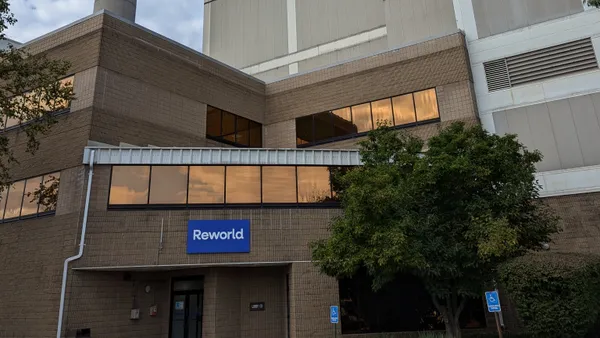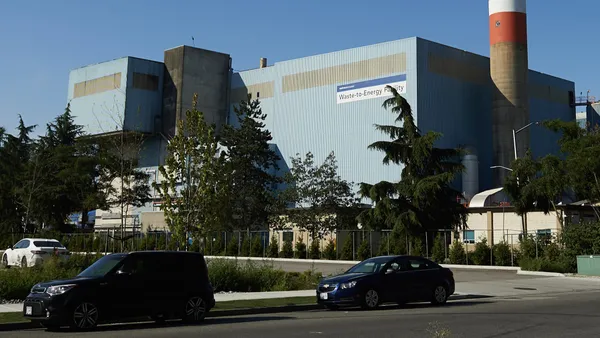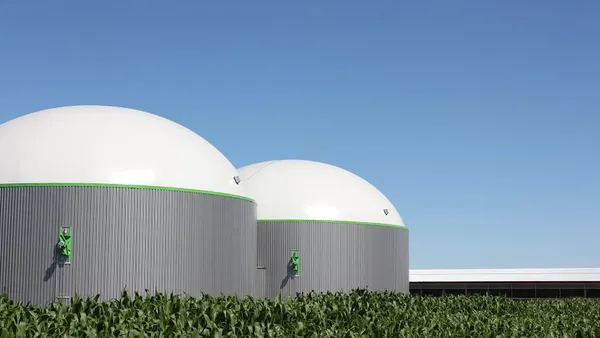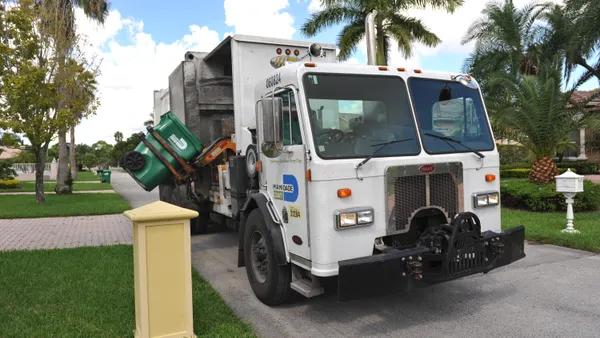Dive Brief:
- California's biomass energy plants are shutting down as competing, subsidized solar farms emerge, mainly in San Joaquin Valley. Six of these waste-to- energy facilities have closed in two years, including a plant in Delano, owned and operated by Covanta, after San Diego Gas & Electric terminated its power purchase agreement with the company.
- Nearby, the Rio Bravo biomass facility will receive some of the fuel that would have gone to Delano, but that plant’s power purchase agreement with Pacific Gas & Electric Co. expires this year. And a Buena Vista biomass facility in Ione may lose its contract with Sacramento Municipal Utility District, according to the district’s spokesman Christopher Capra.
- As a result of the plant closures, San Joaquin Valley Air Pollution Control District may allow more agricultural waste to be burned in open piles, which produces pollution and compounds tied to cardiovascular illnesses.
- Some farmers are experimenting with a new technology that burns about 100 pounds of hulls per hour, though this production figure falls short of the ton per hour the largest biomass plants can handle, and the technology could take a decade to fully develop, according to industry experts.
Dive Insight:
Air quality has historically been poor in San Joaquin Valley, according to the American Lung Association. A policy change on open burning would further fuel the problem, but Seyed Sadredin, executive director of San Joaquin Valley Air Pollution Control District, said the policy change may be necessary.
"Do not underestimate the fact that state law requires that if farmers do not have an economically feasible alternative, the district is prohibited from banning the open burning of those materials," said Sadredin at a board meeting in November 2015. "We have 11 farmers right now that are risking the loss of hundreds of thousands of dollars if they do not find a way to dispose of that material."
Frank Sanchez, a customer of Rio Bravo, said the plant shutdowns and cost to remove agricultural waste will triple cost to farmers.
"They're going to be paying about $1,000 to $1,200 an acre just to do the same work that you were doing before for about $300 an acre," he said to the Los Angeles Times.
Rick Spurlock, general manager of the Rio Bravo plant, is not too excited about the new technology that could help save the industry.
"The new technology is just not developed yet to the scale that we are," said Spurlock "We're handling 200,000 tons of fuel. It would take 25 of those facilities to equal one of these facilities."
Meanwhile, solar energy offerings have been made appealing with subsidized rates of 15 cents a kilowatt-hour offered to support plants.
Advocates of biomass as a renewable energy source say it is a way to keep wood waste out of landfills and create new markets for local agriculture byproducts.
In Joaquin Valley, the biomass industry is fighting to survive, arguing that by culling dead trees the energy plants help prevent wildfires in Sierra Nevada. Stakeholders are hoping for funding or to be able to pass costs to utilities and consumers.













